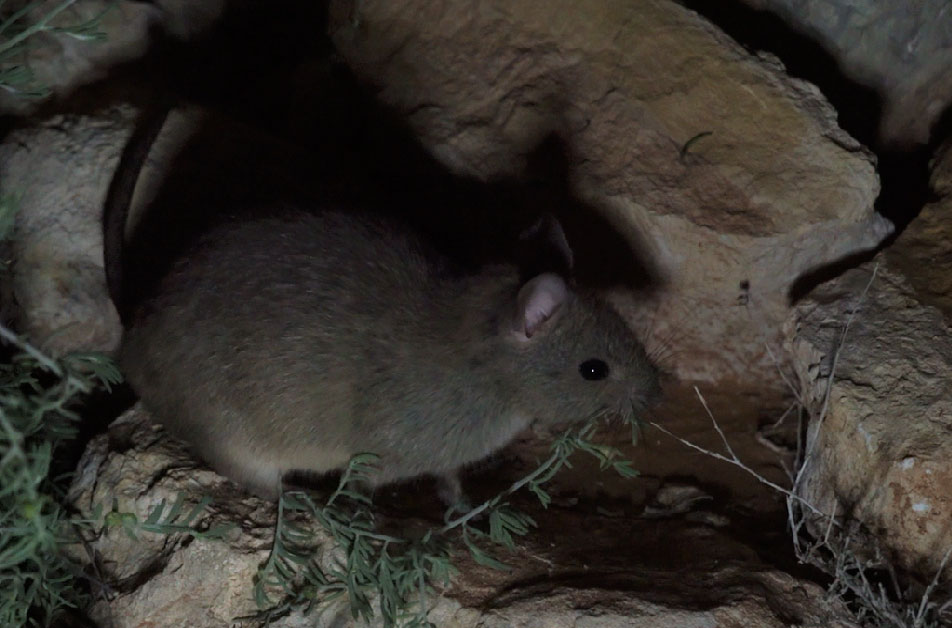On a recent visit to Witchelina, our Field Ecologist, Dr Hugh McGregor was very excited of find a very old Stick-nest Rat nest! This species of native rat went extinct at Witchelina over 100 years ago.
Stick-nest Rats are large native rodents, between 100 – 300g. There were two species in southern Australia, the lesser and greater. They both became extinct on the Australian mainland by the 1930s, and only the Greater Stick-nest Rat (Leporillus conditor) survived at one cat-free island near Ceduna. Cats and foxes are the most likely dominant cause of their mainland extinction. They have since been translocated to other safe-havens where cats and foxes have been removed, such as the nearby Arid Recovery reserve.
 The Stick-nest Rat females build large nests from sticks, generally the size of Wedge-tailed Eagle nests (1-2m2). They raise their young inside, and often pass their nests down to their daughters to take over. Their urine is very oily and acts like linseed oil, helping to preserve the sticks. They would often build these nests in rock crevices. In such cases where the nests are protected from rain, these nests can last centuries. In fact, nearby in the northern Flinders Ranges some nests have been dated 10 000 years old! (McCarthy et al 1996).
The Stick-nest Rat females build large nests from sticks, generally the size of Wedge-tailed Eagle nests (1-2m2). They raise their young inside, and often pass their nests down to their daughters to take over. Their urine is very oily and acts like linseed oil, helping to preserve the sticks. They would often build these nests in rock crevices. In such cases where the nests are protected from rain, these nests can last centuries. In fact, nearby in the northern Flinders Ranges some nests have been dated 10 000 years old! (McCarthy et al 1996).
The nest found in this instance (pictured) is at least the third found on Witchelina. It still contains the sticks the rats used to make the nest, lots of rat scat, and even masses of congealed rat urine (also known as ‘amberat’).

A very interesting find!
Reference: McCarthy, L., Head, L., & Quade, J. (1996). Holocene palaeoecology of the northern Flinders Ranges, South Australia, based on stick-nest rat (Leporillus spp.) middens: a preliminary overview. Palaeogeography, Palaeoclimatology, Palaeoecology, 123(1-4), 205-218.